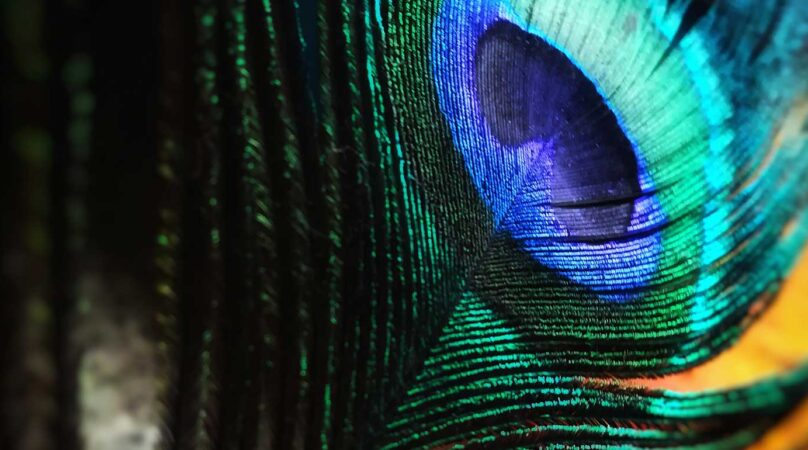The work of visionaries and the work of innovators is beautiful stuff. Not even going into individuals like Cezanne, Monet, Van Gogh, Gauguin, and Picasso innovators in modern art, looking at entirely mundane areas such as politics or engineering or business process and procedure, we see innovators and visionaries making life MORE worth living, more fulfilling and gratifying by what they accomplish.
Really, you may ask? Tom Peters the management consultant, or Dr. Edward de Bono the thinking and creativity expert: these men didn’t just make waves in their respective fields, they made those of us exposed to their work a little more excited to be alive and to be engaged in leadership or creative activities. They inspire beauty and meaning.
This is a central value of creative work, whether pursued in the visionary vein or the innovative. Creative work makes the world anew, makes the work anew, makes the goal/objective/end we pursue more alluring and more exciting. These individuals brave enough to live out visionary or innovative passions, inspire those of us who are exposed to them, their lives and work.
What is the Value of Distinguishing Between Innovation and Vision?
To many today, vision and innovation are issues similar to mythology and fictional entertainment. Mythology and fictional entertainment have always been important aspects of city culture; in Greek times these were represented by the Temples and Agoras (market place/theatres). Mythology and fictional entertainment jointly give city-dwelling humans orientation and a sense of direction where there’s no real space for meaningful private contemplation; by these means the city-dweller finds a respite from the alienation that springs from living in “mass society”, which means being disconnected from rural institutions and having an identity rooted in the public individual.
So interests develop, like “progress” or in our instance “vision” and “innovation”. This is the case of many people.
Still there are those among us in increasing number who subscribe to vision and innovation not as “something out there that makes sense of living down here” but as real and applied personal projects. These individuals are really living according to the dictates of vision or innovation. In application, these things differ from the theoretical abstract qualities common to postmodern mythologies: they become real practical aspects of life. And when innovation, or vision, is lived as a real experience, some of the theoretical concerns become less useful; practical concerns, rooted in living overtake them in importance.
It is for these individuals that these Pho Magazine posts are designed.
The primary value then of distinguishing between vision and innovation becomes practical: when really pursuing the lifestyles attendant to visionary or innovative aspirations, mistaking vision for innovation or vice versa produces felt and obstacles to progress.
Put simply, it is hard to be a visionary approaching vision as innovation; it is difficult also to pursue innovative projects acting as though the innovative goal is strictly speaking, “a vision”. The paradigms, the orientations, are different. Differentiating vision from innovation and understanding both helps practical visionaries, innovators and hybrids understand what it is they’re dealing with day in and day out.
What the World Needs Now…
There’s an old pop song that went, “What the world needs now is love, sweet love…” Our subject in reality deals with this very fundamental issue: what the world needs now. Put another way, since the modern world began with perhaps the Renaissance in Europe, and with the acceleration of scientific discovery, we human beings have been moving ever faster ever farther into new and uncharted territory. It is no longer even fathomable that a son or daughter will live in the same world or the same way as his or her parents: change is happening and it is coming upon us fast and furious. The consequence is that, as a human collective, we are now addicted to novelty. If in a day there’s no “news”, in a week no new product or movie to look forward to, and in a year no new product or technology being unveiled, how bored we’ll all be. As the witty playwright Oscar Wilde famously said, “The sin today is not being bad; the sin is being boring”! Marketers add their contribution saying you must always present your product or service as NEW; if there’s nothing new, present the old in new ways. So modern mass-society no longer thrives just on meaning and morality; modern humankind needs novelty.
In this context we see the real value to our well-being and survival of the visionary and the innovator. They supply the new. They re-make the world in new ways, and by doing that shock and excite us back into a state of aliveness. The technological societies we now live in have significantly reduced our connection to our old lifelines of family, friend and flock (the religious community) replacing these with cyber-communities, acquaintance circles based on competition and colleague communities based on work. These don’t supply the necessary doses of soul-nourishment required to keep human beings functioning well, so we need new sources of replenishment. Our world supplies two sources to “keep us awake and alive” as Peter Gabriel sang: these two sources are entertainment and new developments to keep us excited about life. The world desperately needs the new, in the form of change and progress in the individual life and in the form of new developments in the community life. This is where visionaries and innovators excel.
The word innovator has at its root novo, from which the French word noveau or “new” springs. Novelty is the new. We need it. Innovators make a living of producing it as do visionaries. So we are held hostage to critical role of innovators and visionaries in the postmodern world.
In religion, politics, science, journalism, fashion, and every field it is the new that is now necessary. Knowing how to do things is not as important now as knowing how to uncover hidden possibilities. If humanity runs out of the new at this stage in history we are finished.
The new promises that we can begin again. This is the REAL value at a fundamental level, of the visionary and innovator in the 21st century. They provide, in a roundabout way, hope that tomorrow will be better than today.
Light in the Darkness
So why should it be of any interest how to innovate or how to realise vision? Whether at a personal level, or at a global collective level, we need to be changing as we have seen. The mundane material world weighs us down. The routine makes the masses of mass-society lose a sense of interest and vitality. Those “lives of quiet desperation” that the majority of us have been accused of living are caused by the large-scale machine of a mass-production society. It is not enough that we’re productive. Enter these visionary leaders and innovators! How exciting: new products, new services, new technology that changes our lifestyles – COOL NEW POSSIBILITIES for human living! Why should we care about vision and innovation? Why should we try to ensure visionaries, innovators and those in-between are better and better at accomplishing their objectives?
awesome beauty inspiration mountains travel
Last modified: July 18, 2023


 Tengeneza in Swahili language means to Make or to Create. Making in the deep sense of the word is securely founded on the idea of narrative. Every one who makes has a story. Tengeneza seeks to explore creative ideas and the process by which these ideas come to see the light of day irrespective of the raw materials used to make them. – email us at iamtengeneza@gmail.com
Tengeneza in Swahili language means to Make or to Create. Making in the deep sense of the word is securely founded on the idea of narrative. Every one who makes has a story. Tengeneza seeks to explore creative ideas and the process by which these ideas come to see the light of day irrespective of the raw materials used to make them. – email us at iamtengeneza@gmail.com

